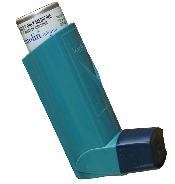
|
Supporting Children with Medical Conditions General Policy Schools are required to have a policy in place to support children with medical conditions, including those with:
Absence from School (Short-Term Illnesses) There are a number of short-term illnesses for which a child should be kept away from school to enable the child to recover and to avoid the risk of infection to other children and vulnerable adults. These are :
For all other illnesses, please seek advice from the school office. Non-Prescription Medication The school does not administer non-prescribed drugs or medication. This includes paracetamol, Calpol, aspirin, Ibuprofen or other pain killers, cough syrups, creams, ointments or oils. Prescription Medication The school prefers that all prescription medication is administered by parents at home. Usually, a prescribed medication is required to be taken 3 times per day. This can therefore be administered by parents or carers as follows:
Where a child can attend school while recovering from a illness or a condition is being treated, and in cases where non-administration of medicines during the school day would be detrimental to the child’s health or recovery, the parent can request that the school administer medicines during the school day. Parents will need to request that the medicines are prescribed by a doctor and then complete the appropriate forms and give all details of the illness and the medication required. This information should be updated by parents as and when any amendments are made, and new forms completed to maintain an accurate records.
Medicines must be received in their original container / packaging, and the amount received in school recorded. Before accepting medicines in school, staff should check that the dispensing label matches the completed form with the following information:
Changes of dosages cannot be amended by a parent. No medication will be accepted or administered without completed forms with parents / carers consent. Designated members of staff (usually first-aiders) will be asked to administer medication. Self-Medication The only medication that children are allowed to administer themselves are as follows:
Parents must complete the appropriate forms and ensure that medications are provided to school. Emergency Medication Children with serious conditions or allergies (e.g. nut allergies) may require medication only when experiencing an episode or reaction. This might, for example, include the use of an ‘epi-pen’ in respond to an allergic reaction. All children with such conditions must have an emergency medication plan. Parents must meet with the lead practitioner in school regarding the illness at least once per year and must ensure that the school is provided with enough up-to-date medication to be able to administer it in an emergency. Emergency Inhalers The school has a supply of Salbutamol inhalers, along with disposable spacers. Only children who are registered to use these inhalers in an emergency may do so. |
|


